For State & Country


VOL 2 NO. 42 • OCTOBER 16 - OCTOBER 22, 2022
More often than not, a politician whose foundation is the corporate world is snubbed when he decides to run for public office. Many times, their attempt at running for such positions they wholeheartedly pursue in the hopes of making a change is crushed by the realities of what it really means to be a politician—especially in Nigeria. It tends to feel like they are being taught some kind of lesson... to show allegiance to party, people and the institution that is politics.
It never comes as a surprise to me. I have always said when asked about politics that the elites will hardly ever be successful at running for office. I think it starts even from Student Union Government back in university. Think about it, did you ever see any of your well-travelled, well-spoken candidates who ran for positions win? I know I didn’t see that happen. No matter how good they were, it always seemed as if the other candidate who sometimes did not make as much sense in his or her campaign, ended up winning.
You could say almost the same is true with Rivers State Gubernatorial candidate Tonye Patrick Cole.
His first attempt at running for office saw him face all sorts of charges, including being disqualified for lack of merit. Thankfully, about two weeks ago, the Judiciary withdrew and discharged the case, giving him a clean bill.
The question is, though, what happens now? Will he eventually win the race for Governor of Rivers State?
Cole is confident that his party, APC, will win this time. And I can see why: He has spent a lot of time learning the ropes, visiting different communities and bonding with his people while truly dissecting how democracy works and, at the same time, understanding what the people of Rivers State, whether young or old, really want.
A couple of things stood out for me in this interview; one was his confidence about winning this time but what really struck a chord in me was when I asked what he would do if he lost. Without saying much, I’ll tell you this: He has it all figured out. Read his interview about plans for the state and country on pages 8 through 10.
Until next week, enjoy your read.
AUSTYN OGANNAH
PUBLISHER/EDITOR-IN-CHIEF
Editor: Onah Nwachukwu @onahluciaa Editor-at-Large: Chalya Shagaya
Writer: Kehindé Fagbule


Graphic Design: Olaniyan John ‘Blake’



Social Media: Oladimeji Balogun




Guest Art Director: Sunny Hughes ‘ SunZA’
COVER FOR STATE & COUNTRY TONYE COLE
8 04-05
FASHION CROCS ROCKS
Cover Story Photography by Gift Eghator @graphedbyblue
0706
& THE CITY
LUNCH AND A WINE LAB
DOWNTOWN CONFIDENTIAL
TO ORGASM? 8 EASY WAYS TO PINNACLE
Odun Ogunbiyi @oddbodandthecity
Contributing Editor
Odunayo Ogunbiyi


an ex pharmacist
15 12-13 14




MAKE YOUR HOME SMARTER WITH THESE 6 GADGETS
BEAUTY CULTURE
BENEFITS OF JOJOBA OIL FOR SKIN AND HAIR
SINISTRAL AND SO WHAT?

a passion
food and pampering. Writing about her exploits
in the world she may find herself is just her way of staying sane in this zany world.
Boluwatife Adesina @bolugramm - Contributing Writer



Boluwatife Adesina is a media writer and the helmer of the Downtown Review page. He’s probably in a cinema near you.

David Nwachukwu @ebube.nw - Contributing Writer
David Nwachukwu has always been immersed in fashion from the age of 10, watching a Dior by Galliano show on television. His work in fashion stretches across media, marketing, brand communications as well as design. As a fashion & lifestyle journalist, David has tracked key industry data for various publications including Industrie Africa, Culture Custodian, Haute Fashion Africa, and HELLO! Nigeria. A Geography graduate from The University of Lagos, David consciously aligns this background in environmental advocacy and sustainable development with the need to promote a more ethical fashion ecosystem. He currently oversees strategic communications at Clean Technology Hub.
Dr May Ikeora @mayikeora
Dr May Ikeora is an academic researcher, Author, and ex-beauty queen cum entrepreneur. She is a specialist in Human Rights, Gender and Peacebuilding, consulting for organisations like the United Nations, African Union, World Bank, Mission89, Governments and the Kofi Annan Peacekeeping Institute. She gained a PhD in Law from the University of Hull, UK, and has received numerous awards for her work, including that within African diaspora communities in the U.K. received at the House of Lords. As an entrepreneur, May founded a cosmetics company called L’Avyanna, based in the U.K. and Nigeria and possesses numerous beauty licenses from the U.K.
VOL 2 NO. 42 • OCTOBER 16 - OCTOBER 22, 2022 PAGE 2 THEWILL DOWNTOWN • www.thewilldowntown.com www.thewilldowntown.com thewilldowntown thewilldowntown Onah Nwachukwu @onahluciaa + 2349088352246
is
with
for
wherever
Photo: Kola Oshalusi @insignamedia Makeup: Zaron
CONTENTS ANIKULAPO
16
ODDBOD
MOVIE REVIEW FEAURE
STRUGGLING
8
EDITOR’S NOTE
Wardrobe: Tonye Cole's Clothes
WHAT YOU SAID @joel__ek @uznwachi @chef.rej INSTAGRAM









PAGE 3 THEWILL DOWNTOWN • www.thewilldowntown.com VOL 2 NO. 42 • OCTOBER 16 - OCTOBER 22, 2022
Crocs Rocks
TIPS ON HOW TO STYLE THE MOST FANCIFUL SHOES ON EARTH
BY KEHINDÉ FAGBULE
Let’s talk about shoes. A quick gaze from head to toe ends at the feet, and so it carries so much significance. ‘Is what I am wearing appropriate for the event? Does it go with my choice of outfit? Are they designers? Are they safe? How comfortable are they? Do I have to keep a flip-flop in my purse just in case?’ A million questions go through our minds during the decision-making process. With shoes, a lot is at stake. However, one particular brand of shoes has been the subject of many questions—Crocs.
Nowadays, it’s not embarrassing for celebrities to be seen wearing a pair of Crocs. In fact, many of them work their pairs into outfits like any hyped sneaker. While rappers like Nicki Minaj ice them out, others just wear humble solid-coloured pairs to add a dash of eccentricity to already well-put-together looks. Here are your favourite celebrities in their fancy Crocs.
TIERRA WHACK

STYLING TIP: A multi-coloured outfit pairs well with an eccentric pair of designer Crocs.
When Tierra Whack performed at the Afropunk music festival in Brooklyn in 2019, she wore a pair of yellow platform Balenciaga Crocs. Whack paired her clogs with upcycled pieces from Borbola. As shown in this fit, a great way to style a flashy pair of Balenciaga Crocs is to wear them with another unique piece that also stands out from the crowd.


CUPPY
STYLING TIP: If you are wearing a pair of Crocs, you must exude a playful aura— the type that is synonymous with the Cuppy brand.

If anyone can pull off a Crocs style in Nigeria, it is Cuppy. Inspired by Nicki Minaj, the DJ rocked her Crocs with two-piece sweats and pants in her signature colour. She has since been with different designs of pink Crocs.


LEBRON JAMES
STYLING TIP: When wearing a special pair of Crocs, don’t be afraid to build an outfit completely inspired by them.
When it comes down to some of the best Crocs collaborations in recent memory, the Chinatown Market x Grateful Dead Crocs immediately comes to mind. These tie-dyed Crocs capitalized on the renewed interest in Deadhead merch and included unique Jibbitz that captured Grateful Dead bears climbing across the holes of the clog. When Lebron James backed these out before a game against the Houston Rockets, he made sure to pair these well with a Chinatown Market x Grateful Dead hoodie and shorts. Other ballers like Shai Gilgeous-Alexander have shown that a standout Crocs collaboration can go with anything.
PAGE 4 THEWILL DOWNTOWN • www.thewilldowntown.com FASHION
STYLING TIP: If you can ice your Crocs out go for it.
It’s not surprising that when Nicki Minaj decided to break the internet and Crocs’ webstore by wearing a pair of Crocs, she of course, wore a bright pink pair. But on top of that, Nicki has been changing the whole damn Jibbitz game when it comes to Crocs. The Queen of the Barbz is likely the first celebrity to ice out her Crocs. As seen in that viral photo, Nicki put in some iced-out Chanel logos, pearls, and other fine bits of jewellery. Shortly after posting that viral photo, Nicki came through again to flex another pair in black, which also boasted some Chanel jibbitz.
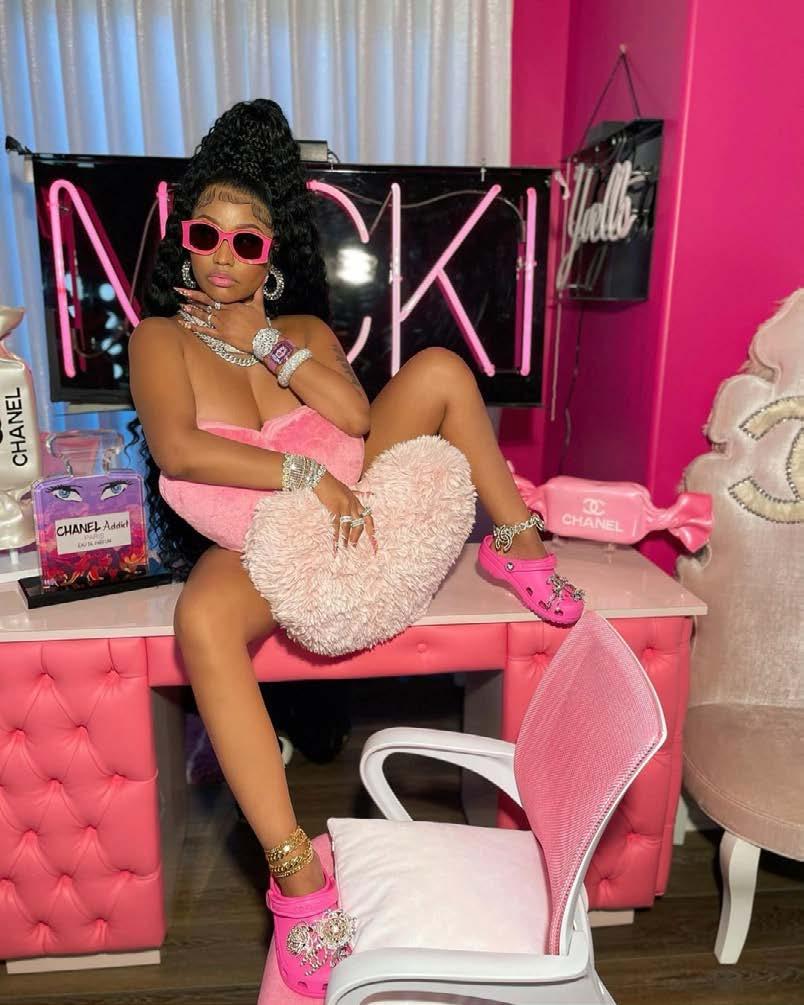


NICKI MINAJ
PHARRELL WILLIAMS
STYLING TIP: A regular pair of Crocs can be customized to fit your own tastes with the right Jibbitz pieces.
Pharrell is another celebrity who knows that a pair of Crocs can stand out on the red carpet if they are styled correctly. For the premiere of Netflix’s The Black Godfather, Skateboard P pulled up in a real casual fit that included a pair of chino shorts, a Cactus Plant Flea Market hoodie, and a loud pair of tie-dye Crocs. But to make this pair stand out, even more, Pharrell put in Jibbitz that spelt “Plant” on one clog and “Super Dad” on the other. Pharrell found these Jibbitz so enticing that he even stayed true to customizing other pairs of Crocs with them in the exact same pattern. Anyone inclined enough to copy this style can definitely do so by buying the exact same Jibbitz on Crocs’ webstore.

QUESTLOVE
STYLING TIP: To deviate from wearing solid-coloured Crocs, consider buying a pair in gold.
When Questlove pulled up to serve as the musical director of the 2021 Academy Awards ceremony, he came through in a formal suit tied together by a pair of golden Crocs. Questlove knew that if he was working that day, he might as well arrive at one of the world’s biggest awards shows wearing something comfortable. So what better footwear to wear than these? The move was definitely controversial in the eyes of those who organized the show this year. Prior to 2021’s Oscars, attendees were sent a letter that read, “We’re aiming for a fusion of Inspirational and Aspirational, which in actual words means formal is totally cool if you want to go there, but casual is really not.” But when you’re Questlove, you definitely have permission to do whatever you want.

SAWEETIE

STYLING TIP:
A designer pair of Crocs is the perfect match for streetwear.
American artist Saweetie launched her Crocs collaboration last winter. She modelled two pairs of Crocs— one with a Christmas design and the other with a typical snowy winter design.


PAGE 5 VOL 2 NO. 42 • OCTOBER 16 - OCTOBER 22, 2022 FASHION 42
ODDBOD & THE CITY
Lunch And a Wine Lab
There is nothing this girl loves more than an invitation for free food and drink, so when the opportunity came around to try out the new menu at The Wine Lab, to say I was there with bells on is the understatement of this year.
last time I enjoyed one as much in recent memory.
I was allowed to bring a friend, so I rolled up with a fellow foodie, an empty stomach, and an open mind.
The first thing to appreciate is that it’s off the beaten track, so you first absorb the sensation of walking through a friend’s quiet, well-curated garden as you make your way through to the restaurant. On the right-hand side is the relatively new kids’ play area. An enclosed safe space shaded by giant old trees with a sand pit and games that can be rented out for parties, but most importantly, it allows the kids to be selfsupervised while you enjoy adult time close by.
It’s a great modern space with outdoor, indoor and greenhouse dining options. A sexy-as-hell members’ cigar lounge upstairs, with the prerequisite moody
leather chairs and wood accents, I don’t know who I must cosy up to, but I must find a way to hang out there soon. Gorgeously set up with some captivating design pieces; I especially love the art and photography, namely the gorgeously clever tables made from scrap metal.
If I had to describe The Wine Lab’s ethos, it would be passion and attention to detail. This is clearly a space for you to come with friends, have a laugh and commune over good food and wine. The wine cellar is extensive and caters to all tastes and wallets.





We started with cocktails, as all civilised people should, and my mojito was one of the best I have had this year (this is me wracking my brains); I can’t remember the
To the food! Let me apologise now because I never actually looked at the menu, so I can’t break down everything we had as I usually like.
Chef Treasure



started us off with some fanatic sushi, followed by a moreish lamb taco situation that I highly recommend.
We basically powered through most of the mains. I absolutely loved the seafood pasta with arrabbiata sauce— you know you are on to a winner when it’s more seafood than pasta, in my modest opinion. The lamb? Also yummy. Randomly, though, it was a humble rice and lentil dish that really blew my mind. Worth an honourable mention was the catch of the day, I am usually not a fan of fish, but I loved everything about the flavour, texture and vegetable accompaniment. Eightyear-old Odun would never believe my passion for well-prepared broccoli…. you could not get me to touch anything green and cooked for all the money in the world back then.
I had the apple crumble for dessert from a large selection that I struggled to share with the rest of the table. I have previously mentioned my theory on how cinnamon is like crack to me, so there is probably no need for me to speak further on that. I will let the photos do the talking, and I have already been back for a sneaky drink since the wine tasting, as the location in the VI/Ikoyi/Lekki trifecta is nice and close to me.
VOL 2 NO. 42 • OCTOBER 16 - OCTOBER 22, 2022 PAGE 6 THEWILL DOWNTOWN • www.thewilldowntown.com ODUN
STRUGGLING TO ORGASM?
8 EASY WAYS TO PINNACLE
BY AKINTOYE DORCAS
Over the years, research has shown that the capacity to experience orgasm during intercourse, and to a lesser extent in masturbation, is partly genetically determined. An individual’s response to sexual pleasure during their lifetime is a mixture of both the physical processes and the subjective responses to those processes.

According to research, 10% of people with vulvas reach climax easily while the other 90% struggle. Many people have trouble reaching climax because some can’t seem to get over the “almost there hump” or because the thought of their mountainous to-do list always pops into their heads just before they get off. This is more or less like a “You” thing. We all must have been told something like, “Just chill out, stop thinking about it, and it'll happen”, but the bitter truth is that the classic advice to simply “relax” your way to a mind-blowing orgasm is straight-up wrong. According to psychotherapist experts, entering into a sexual moment with the hopes of haphazardly and spontaneously arriving at pleasure is unrealistic. It’s also fundamentally not how the brain or body works. As a matter of fact, the whole idea of “relax babe, it will happen” can eventually lead to increased substance use in women trying to enjoy sex. There are many reasons why orgasm might not be happening for you. Myisha Battle, Allbodies educator and sex coach, explains that stress, negative body image, hormone imbalance, prescription meds like SSRls, or simply not liking a particular type of stimulation can all come Into action and shop away your feel-good release.
Orgasming can require some mental, physical and emotional labour, regardless of your libido, sexual orientation or comfort level with your body. There are plenty of ways to make orgasm more accessible for your body; let’s get you started.
(1)Check in With Yourself:
One major vital thing to reaching your pinnacle is finding ways to destress. It will be good for people who struggle with orgasm to explore where in their life that harbour too much control.
Orgasm is all about surrender. When we try to control too many aspects of our life or some aspect too lightly, this can leak over into orgasm function. If you find out you are having a hard time letting go, consider chatting with a professional.
(2)Incorporate Erotism:
For many people, if a partner is going to bring them to orgasm, the mechanics only account for half the equation. However, the truth is that there is a need for some erotic charge to the exchange, which could be described as the flow of desire communicated between two people.
There are so many ways to contribute to erotism; articulating your preference for where you’d like to be touched is one of them. If you don't like your nipple pinched, kindly give your partner feedback by telling them what you’d like instead. Tell them the part of your body to be touched when they are at it. That erotic
intimacy will help to keep you present. Radical self-acceptance is much easier said than done; there are periods when you start feeling insecure about your body or even about how your partner thinks about you. One thing you should learn to do is to believe that your partner thinks you are sexy at the moment. If you can buy into that, you’re one step closer to your next toe-curling orgasm.
(3)Arousal Gel:
An arousal gel might be the final push you need if you find yourself getting close to orgasm but can’t seem to get past that “I’m so close, wait, no, it's gone” hump. These gels and lubes help in enhancing sexual sensation, making it easier to climax. Arousal Gel works by opening your blood vessels which amps up oxygen delivery and blood flow to the genitals. This process increases sensitivity and secretions to intensify orgasm, which means you get wetter, and your orgasm comes easier while you come harder.
(4) Play a Sex Game:
If you sit there, trying to will yourself to orgasm, you might be putting too much stress on the whole thing. One fun way to take a step back is to have fun and playfully connect with your partner. Playing sex games will definitely turn you on since they likely involve stripping naked or licking body parts. Most importantly, they will get you talking about which is big for arousal and climax.
Apart from the fact that communication is a form of seduction, it is also a precursor that lays the foundation for more meaningful, fulfilling and pleasurable sex. Ranging from sex board games to classics like dirty truth or dare, there are many options out there that can help build up the sexual tension and help you get closer to getting off.
(5) Be Very Vocal:
One of the keys to good sex is talking about sex. When you normalise talking about sex —especially when you are not having it— you create space in your relationship to easily
verbalise what you want in the moment.
Apart from chatting outside the bedroom, don’t be afraid to use your voice while getting it on. Have it at the back of your mind that if you keep blocking your sounds, you will likely be blocking your potential for orgasm.
Note that when you allow yourself to vocalise during sex and self-pleasure, you allow more blood flow to your pelvic floor, vagina carnal, cervix and the entire structure of your clitoris, which helps you reach orgasm.
(6)Pay Attention To Your Breath:
Remember to pay attention to your breathing when getting all vocal. Engaging in super rapid huffs and puffs or even holding your breath could hinder blood circulation.
Apart from the fact that focusing on your breath work will help ensure ample blood flow to get to all your arousal organs, like your clits and your brain, to help you climax, it will also help you stay present in the heat of the moment.
(7)Do Two Things at a Time:
For this, while your partner is going down on you, ask them to put a finger or two inside you and move your hips against their mouth to help create a rhythm that feels best for you. Most times, rather than just one move, it’s a combination of things that hits the magic button.
(8)Dry Humping:
Dry Humping, or whatever you call it, is the act of rubbing your vagina against your partner’s leg, knee, erection or other body parts. I must say that it deserves more respect and love than most people give it.
Dry Humping is one hugely underrated method, but it works like magic. With your clothes or underwear as a barrier, grinding against your partner’s pelvic bone or genitals will indirectly stimulate the clitoris, arousing you in a spectacular way.
PAGE 7 THEWILL DOWNTOWN • www.thewilldowntown.com DOWNTOWN CONFIDENTIAL
IMAGE FROM ELEPHANT JOURNAL
Nextyear, the elections will be all we are going to be talking about. It is no surprise the amount of significance it holds. As Nigerians eagerly await the time to exercise their civic responsibility and cast their votes, it is important to remember that the gubernatorial elections have as much direct influence on the country as the presidential election. Oftentimes, when we discuss nation-building, we begin from the top—Aso Vila; however, a country is only as progressive as the different arms of government that make it up.
DOWNTOWN’s Editor, Onah Nwachukwu, had a lengthy manifesto-esque conversation with business tycoon and All Progressives Congress (APC) Governorship candidate, Tonye Cole, to discuss the legal brouhaha that culminated in the removal of his party, the APC, from the ballot in 2019, preventing him from running, his plans to level the playing field for underserved communities—especially women and youth, including older citizens—and how he plans to resuscitate Rivers State back to its glory days, with emphasis on empathy and redefining democracy as a system of government that has the best interest of the
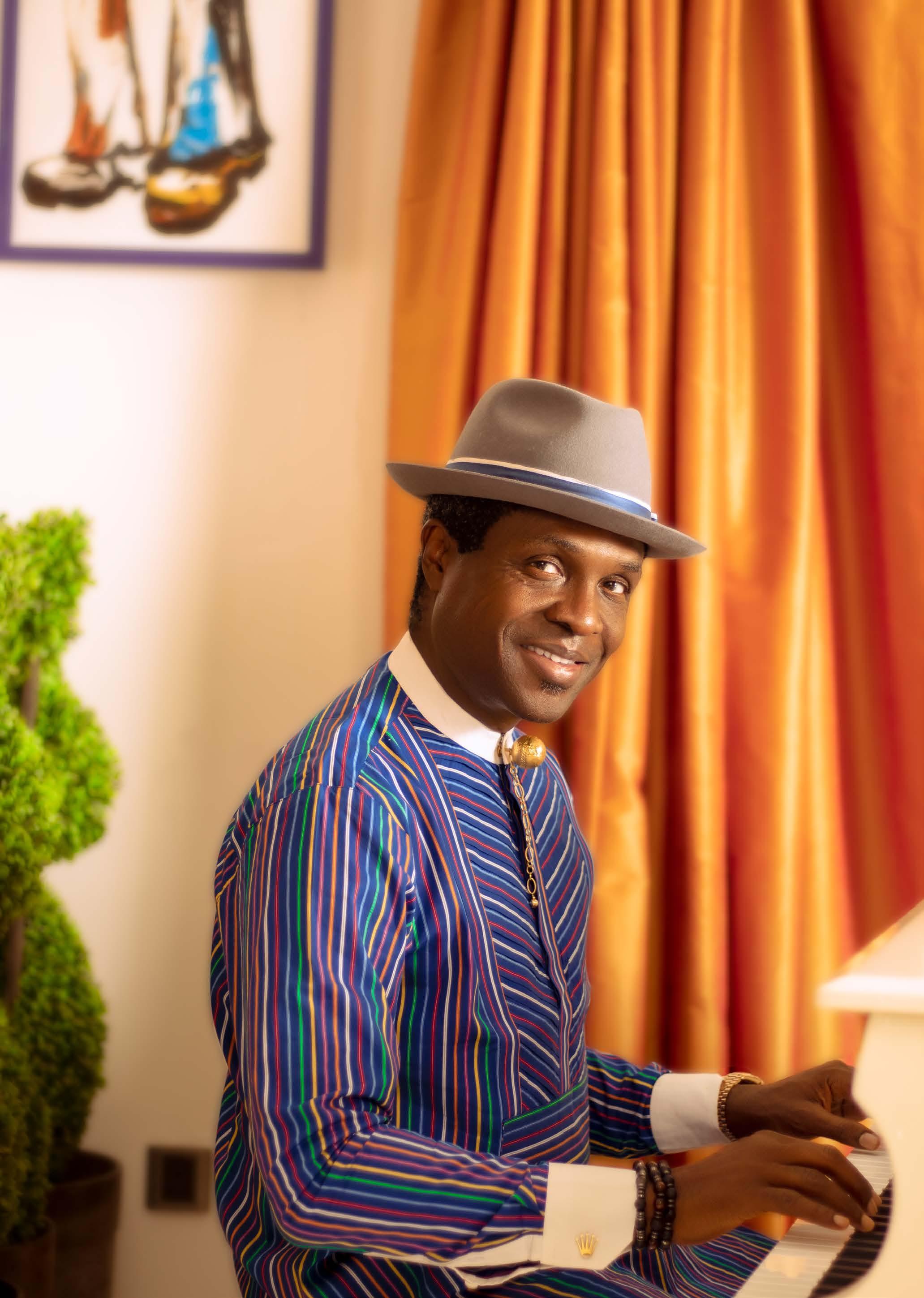
Tonye Cole For State & Country
BY ONAH NWACHUKWU
or sentiment-based politics. So that’s the first thing. INEC is providing that background now. The second thing is that the Judiciary also realises that they have been at the brunt of a backlash by public perception that the Judiciary is no longer the last line of defence. And it used to be the last line of defence for the common man, so people always felt that they could get to the Judiciary and there was hope once they got there. But a series of judgements in the last couple of years has caused people to begin to doubt the sincerity or honesty of the Judiciary. And I believe that the Judiciary themselves have now looked at it and said, ‘this cannot be good for our reputation. Let us begin to do things differently.’ This case is one case in hand to show that the Judiciary is becoming reliable.
Do you think that people will trust them just based on the judgement you got?
Yesterday, the Rivers State government withdrew the charges against you for lack of merit. Congratulations. Thank you.
What did you think of the charges in the first place, and what does this mean for you in the long run?
First, I had always said there was no basis for that case, and for anyone who cares to know, I’ve always said that the entire documents for the transaction were available in the public domain. And the freedom of information act permits anyone to ask for those documents to see how the transaction went. So I was always confident that the case would not hold based on merit. But essentially, what causes me a lot of joy is the stand of the Judiciary in this. At the end of the day, the case was not just withdrawn; the Judiciary dismissed it, which means that's the end of it. It’s dead and buried. And it’s a vindication on the fact that the Judiciary has chosen in this dispensation not to be used as a tool of intimidation by any government, so that’s good.
You mentioned that you were confident, which is why you continue to run either way?
Absolutely. So two things are happening with the Nigerian electoral system, and I think both are very good for democracy. The first one is INEC realising that they needed to do something about the electoral process, which created a lot of loopholes that politicians took advantage of to rig. As a result, you’ve had the issues of the beavers coming up and all of that, giving voters a lot more confidence to believe that their vote will count. What that has done, in essence, for the political process is that it is now causing politicians like myself to come out as a new wave of a different type of politician coming in that will cause the public to question more about issue-based politics versus religious
I think once trust is eroded or lost, it takes a long time for it to be restored, so I think this is just part of the journey; this is one. The next one will be another, and the one after that will be another. And as INEC and the Judiciary, both improve in their transparency and the way they handle these processes, I believe the Nigerian people will have a lot more trust in them, and that is good for democracy. We actually need to have an umpire that is unbiased in creating a way forward for individuals who would normally not be in politics to come into politics, and a judiciary they can trust will uphold their victory when the people actually get up and vote for them. I’m hoping this will be the case.
Do you think the people's voices will be heard this time?
Women and the youth especially, what other things can be put in place for them to be listened to?
Democracy in itself is for everyone; it’s not just for men; it includes women and young people as much as it includes the elderly. Where one group—whether majority or minority— feels like they are disenfranchised, it means democracy is not doing what it ought to do. And so the first part is democracy is meant to protect minorities from the oppression of the majority. So we have to look into that. Now when you look at it specifically to the youth and women, then you know that the stronger force in society must arise and protect what you’d see as those who are disenfranchised. For the youth, you have the whole argument about ‘not too young to run’; now, we have to enforce that aspect, so government must be very deliberate about including young people in decision-making. Not just a token; they must be part and parcel of government as commissioners, ministers, and legislators. That’s a deliberate political process; it's not just the youth wing that should have youth; it’s not just the women’s department that should have women but across board. For women, in particular, one of the things I found out as a he-for-she ambassador over the years, both in the private sector and legislatively, is that many boardrooms are filled with men. Likewise, a lot
VOL 2 NO. 42 • OCTOBER 16 - OCTOBER 22, 2022 PAGE 8 THEWILL DOWNTOWN • www.thewilldowntown.com COVER
of the government policy-making apparatus is headed by men. Once you have that, those men have to have very deliberate actions and policies that see women come to the forefront; if not, it won’t happen. And we need to have a he-for-she ambassador in government that will position women legislatively. There was a bill they were trying to pass in the national assembly that was defeated—to have a set number of women in the house, so it was almost like affirmative action. But essentially, it was working towards ensuring that you have a certain percentage that must be filled by women. I think that has to be pushed. Until we have that part of it done, we will still struggle.
How do you intend to fight for that if you come to power?
The good thing is that for me, it’s always been an issue; it’s not something I just woke up and chose. I was a he-for-she ambassador in the private sector, where we fought directly for women to become more engaged in our business, especially at the top level. So as a governor, we have to do it. We start by the type of appointments we have, making sure that women are not just given appointments such as the Commissioner For Women Affairs role alone. Those kinds of token appointments don’t hold. We need to ensure that women—very competent women—are heads of parastatals, head of directorates, commissioners, are involved in things people would normally say are for men. We have strong women, and those women must come in. So I intend to push that very hard.
Yes, you did it successfully in the private sector, but this is Government; it is usually a very different operation. Do you think this is as easily attainable as it was for you in the private sector?
Absolutely not; it’s not as easy. But it's about interest. Two things are at work here. The first aspect of it is you have to deal with interest. How do you protect the interest of men who may be afraid that they would lose out by giving out these positions? You have to balance that. You have to bring an understanding that, this is not about losing out; it’s about inclusivity and increasing the pie. Once you take in 50 percent of the potential that women bring to the table, you actually increase the pie, making it better for everyone. So it’s about negotiations, interests, sitting down and making everyone understand why this is better for everyone, and these are the things that we must work on. So it’s not going to be easy, but it is about negotiating, it’s about interests, and carrying people along.
You may have moles who are only interested in your downfall. Do you think you have things put in place to
check that should they arise?
They will arise. And I think one of the things that you learn very quickly in politics is that everybody is important. You cannot ignore even the feelings of one individual. You are not going to be able to solve all the problems, but if you are a manager of people, empathetic about them and a good listener, you’re also able to accommodate your shortcomings, correct your errors and move forward, then people see that you are authentic about what you do. And there’s something about being authentic; when people realise that you mean well, they are willing to give you a bit more leeway. And I do mean well. I mean well when it comes to uplifting the downtrodden, inclusion of women and youth into government, I mean well when it comes to spreading and ensuring that far-flung places are brought to the centre
and help reaches them.
I think when people begin to see that you actually mean well for them, they are willing to go the extra mile to help you achieve your goals. But they have to trust you, and that is where the work is. The work is making them see that your intention is not for yourself looking to the government to line your pocket or patronage of your cronies, but it’s you doing everything to ensure that those in need get the help they need.

“…YOUNG PEOPLE, by their nature, are disruptive as well. But disruption is not a bad thing.
When you say DISRUPTIVE, people think you mean negative, but it doesn’t have to be.
Everything that we are using today—as you see with old people using Facebook and Instagram to communicate—is because someone who was 20-something years old somewhere disrupted an old system. So I have absolutely NO PROBLEM with disruption. I think that if we are going to progress and excel in this world, then we must encourage INNOVATION AND DISRUPTION.”
Speaking of trust, I find that many people just don't trust the country or government anymore and would rather leave the country. You, however, recently ran a poll on Instagram asking people about the japa trend versus staying and making Nigeria better. Would you say that you got the information you wanted from that poll?
Yes, we did. Essentially, you’d see that in any kind of situation, people vote with their feet. If they don’t trust a place or government, they will move. The real voting is done with the feet. When people are migrating, it is because of their belief that their social contract with the government has ended, so they look for where they can go to re-establish that social contract. When you know the problem, that’s halfway through the solution. So the first aspect is that there is a lack of trust in the ability of the government to secure a future for individuals; and it’s not new, these are cycles, and they happen with every generation. Every 10 to 20 years or so, we see this mass exodus of people. But it does not mean that we are condemned to this cycle; something has to change. And when it changes, you find that you begin to have a reversal
COVER
of that voting by the feet because then people vote to come back, or the ones still here, stay. And this is what, as a government, we have to do. So the first step for me in Rivers State is to ensure that those who left the state, especially businesses that moved out to Lagos and Abuja, can return to Rivers State. And that’s the first vote of confidence they have in saying that something has changed within these dynamics to give us trust in the future. Once you begin to show that you are able to create that environment that enables businesses to come back, you are doing well. It’s almost simultaneously for the second level. So, on the one hand, you are stopping businesses from going, but for those who have stayed, you need to stop them from leaving, at the same time attracting those who left to come back. Once you can achieve that, you’ll find that the next step is that if businesses can stay, and others can come, they begin to create job opportunities that will begin to satisfy people who normally would have japa’d. Because now, they can see hope for themselves that they can finish school and get a job, or even if they can’t get the job that they apply for, they can see there’s an opportunity to use their entrepreneurial skills, and they will make a living. Once you can do those two things, you will find that people are unlikely to leave. I’ve found over time that if you can excel at home and you have the opportunity to travel and come back, it’s far more preferable thank for you to japa somewhere and be a second-class citizen. You might have light, water and all the basic things, but you are never right there at the top. For years people have always wanted to return, to help, to see what they can do. We need to create that environment, so we’ll start doing that with Rivers State. Once you have Rivers State doing that, and other states with progressive governors who understand what it means to create a safe environment for businesses, families and education, you will see that Nigeria will start getting better because one state governor can influence another to say if they can do it there, why can’t we do it here? My target has always been Lagos because Lagos and Port Harcourt were at par many years ago.
People would either come to Lagos or go to

PAGE 9 THEWILL DOWNTOWN • www.thewilldowntown.com VOL 2 NO. 42 • OCTOBER 16 - OCTOBER 22, 2022
Port Harcourt, and it was always a choice. 20 years later, it reversed. Why? What did Lagos State do that Rivers State didn’t? Once we can answer that question, the target for me is to reverse that trend so that Rivers State becomes the first line of call for any investment, any young person in school, youth corper, business person; such that when someone sits down wherever they are, and decides that they want to better their lot and are looking for places to go for opportunities, the first place they are going to think about is not Scotland or Canada, it should be Rivers State because it is close to home, and they can succeed. That’s what I want them to do, and we’ll get there.

You kind of answered this already, but in taking Rivers State back to where it used to be, how will you tackle a major issue there—the hoodlums and cults?

Firstly, that’s a mindset and economic issue. When people lose hope in education, business or in the government, when they lose hope in the social fabric that gives them an anchor to become anything, then you find that crime begins to rise, insecurity takes a prominenence, cult groups begin to form the social fabric with which the young people hold on to because through that fabric, there’s an ability to use violence to take things. They can walk into a shop and take things that normally they’d have had to work hard to pay for. So you need to change that mindset. So for us as a government, it becomes important to show that that social fabric that’s creating a better tomorrow begins with each one of us today. We must enter into that social contract and be ready to feed the man today for him to be able to look at what hope tomorrow holds. And how do you show somebody that you’re ready to feed them today?
It’s about empathy. You must be able to sit down, listen, and understand what worries them now. And begin to provide the short-term low-hangingfruits solutions that will answer to now, such that they can begin to listen to you when you are telling them about tomorrow. So one of the things that I had to do essentially was to go around from place to place to see what the people are doing, and what are the community needs. What are they looking for? What do they answer to? I’ll give you a typical
example. I went to the Orashiri region in Rivers State, and that area is predominantly agricultural. But guess what, every year without fail, the place is flooded. So if you are a farmer in that area, you cannot plan for anything beyond two months or dry season farming because as soon as the rain starts, all your production is lost, and your homes are flooded, which means that they are doomed to poverty if nothing is done. We know it’s going to flood, and we know that the area is agricultural. We know that they are susceptible to water-borne diseases because of the flood, so what do we do about it?
We don’t simply fold our hands; we have to think about how to solve those problems of flooding within that area so that people can be lifted out of poverty. There’s another example, a place in the northern part of the Abua local government. For you to access that area, you have to leave Rivers as if you’re going to Benin, making a U-turn between states. Meanwhile, it takes nothing to have a link road that cuts through the middle. Nobody thinks about the cost of produce that has to leave these places because, by the time they go through all of these journeys, their produce is lost. So you need to be able to think about these things and how you address the little issues that affect people in their communities. When they see that you are sincere about solving their problems, they are more willing to be less militant.
You spoke about the not-too-young-to-run bill, but one of the issues that plague them is the older generation's hesitation to embrace change and progressive ideas.
Where are we going? Technology and innovation, by their very nature, are disruptive. This means young people, by their nature, are disruptive as well. But disruption is not a bad thing.
When you say disruptive, people think you mean negative, but it doesn’t have to be. Everything that we are using today— as you see with old people using Facebook and Instagram to communicate—is because someone who was 20-something years old somewhere disrupted an old system. So I have absolutely no problem with disruption. I think that if we are going to progress and excel in this world, then we must encourage innovation and disruption. Now, at the same time that you are doing that, you are also balancing all of that with what you call the fear of the future. And so what you see with the older generation is a fear of what tomorrow brings. If the system has already shown that pensions, gratuities, and the way our society often forgets older people and pushes them aside, then we’d see that the older generation will continue to do two things: One, they will fight to hold on to power, such that you’ll have very old grandfathers competing actively for jobs that their grandchildren should be doing—positions in government. If I went into government today, I am almost certain that on the first day of being sworn in, I would get applications from people in their 70s and 80s, ready to take up the job of a commissioner, something that their children should be doing. Now it doesn’t mean that once you are elderly, you no longer have a role to play. Some elderly
people have very potent roles to play. What matters in all of this is that you are willing to show those who are elderly that there is a path for them. What concerns an elderly fellow? Three things: One is respect; social respect to the elderly is very important as people who have lived through life want to be respected for either what they have given or what they have or are yet to give. The second thing that every elderly person doesn’t want to worry about is their health. They want to be sure that the basic things that a check should do, they should have it accessible and affordable. Many old people retire from the hustle of the city and go back home, but why will they do that if they get back there and have no access to affordable healthcare? The third thing older people want is some dignity, which is close to respect, but the dignity in this aspect is that they don’t want to have to become beggars. Now what you see a lot today is that almost everybody here has become a beggarly society. Even old people are now hard-pressed, and with a lot of shame, they have to now beg you for money to feed. It is totally unnecessary, and so as a government, we need to be able to address these issues for the elderly.
How do you address these issues for the elderly?
“…And how do you show somebody that you’re ready to FEED them TODAY? It's about empathy. You must be able to sit down, listen, and UNDERSTAND what worries them now. And begin to provide the short-term LOW-HANGING-FRUITS solutions that will answer to now, such that they can begin to LISTEN TO YOU when you are telling them about tomorrow.”
If you are meant to dole out cash and put all of these things in place, you will find that you don’t have enough money to do them; and so in social engineering, you find out that one thing leads to another. Where the bulk of the energy is to create an environment that will ensure that the middle class is built and strengthened to take the weight off the government, grandparents, and elderly is where we need to focus. And that’s focusing on entrepreneurship, the youth, and harnessing their strength for innovation and breakthrough, giving them an environment that enables them to work. Once you can do all of that and increase that aspect, you can take resources from what they are doing to finance and fund the kind of things that you need for the elderly. If your workforce is decimated, you will not be able to do what needs to be done. Unfortunately, in Nigeria, we look at FAQ, we look at the allocation that comes from the centre, and IGR (internally generated revenue) that is set from oil companies, banks, and all of that. It’s not enough to do what needs to be done, and that’s where we have a bane. So you must understand the power that is inherent in a youthful population that is entrepreneurial and innovative. It generates more income than you can believe. There’s a lot of work to be done, but it’s doable.
How can younger people be part of nation-building?
It’s about engagement. Over the past couple of years, I’ve spoken to young
VOL 2 NO. 42 • OCTOBER 16 - OCTOBER 22, 2022 PAGE 10 THEWILL DOWNTOWN • www.thewilldowntown.com COVER
people and for almost every one of them, by the time you engage with them on the potential and they see the part that they play, most of them change their minds about the role that they have to play in building Nigeria. I run an online mentorship program on nationbuilding; I started during the COVID lockdown when everyone was just sitting at home, and we had a captive audience; it’s called ‘Mind Swap’, and it's continued till now. I called a couple of young people that I’ve mentored over the years and asked them to put together a program that addresses young people, we’ll mentor them and invite people to speak to them about the potential and what life brings. We’ve had four cohorts now, and each one of them has produced a fire in the young people. Some have decided that they are going to be very active in politics, some have become card-carrying members of parties, some are now saying they are going to run for office, and others have dedicated their businesses towards how they can improve the nation.
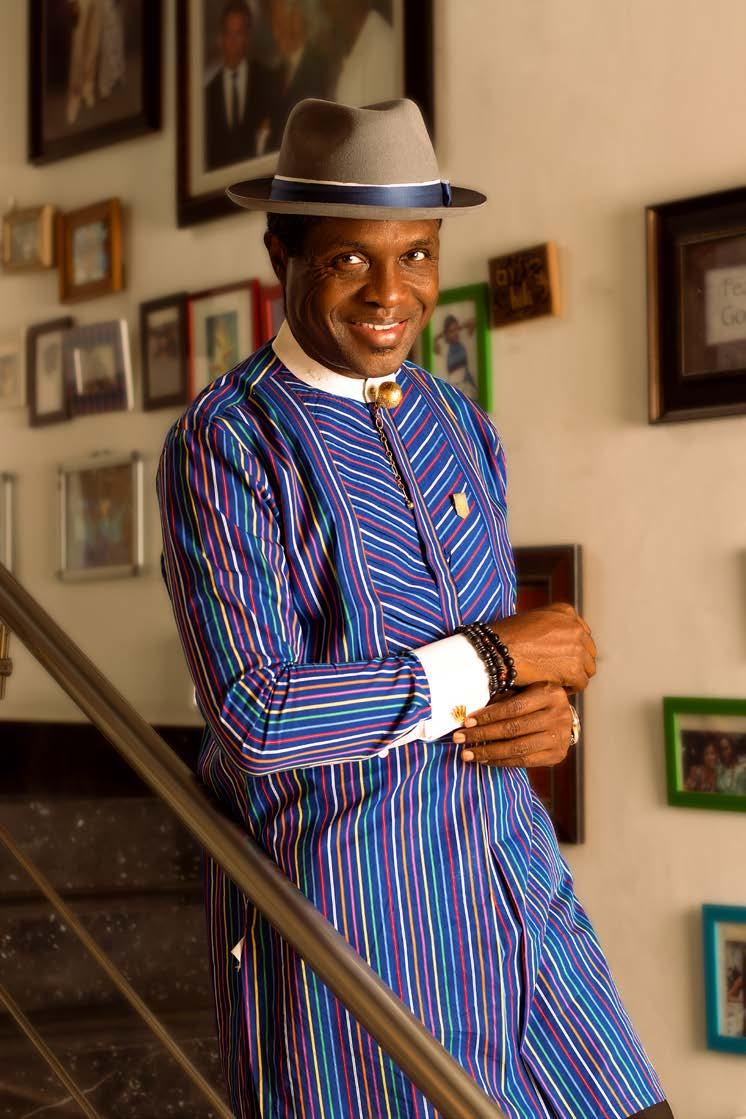
Now, these are people who, under normal circumstances, their mindset was that they were going to leave. But they’ve changed their mind. I'm also involved in a program set up by Oby Ezekwesili called ‘Fix Politics.’
It's a program that basically talks about a 3-tier approach to fixing Nigerian politics. Why I bring these things up is that we are not devoid of people who want to rebuild Nigeria. Nigeria actually has many people who want to do something and what they need is the avenue to do it. What they need is people like me who have gone out ahead to then show the way, and they will follow.
In showing the way, you admitted that you and your peers should have done that ages ago. We should have o
How do you feel about that; any regrets? Do you feel that you started this too late?
No, I don’t regret it. I wouldn’t call it regret because, on the one hand, what it did was it also led us to build the businesses and industries we built, whether it’s in banking, insurance, oil and gas; all my generational peers have done all of these things. But what it
has given us is the perspective of wisdom that comes with age, whereby we now see the folly of ignoring politics. So it gives us the gravitas and authority to be able to speak to the next generation of young people to say ‘you don’t have to make the same mistakes; you don’t have to do things the way we’ve done it.’ So it’s important that you get into the political space, be very aware of what’s happening in politics, and don’t ignore it because it will affect your future. So no regrets, but what we are now doing is making sure that the young people of today are as invested in politics as we are.
A lot of times, people in government don't exactly see businessmen as being able to run a country. This is not the first time you've tried; they dug up all sorts of cases and reasons why you were not qualified to run on your first attempt. Luckily for you, the case has been withdrawn. How confident are you about winning? One hundred percent. Many things are different from the last time that I ran. Business people, we don’t like to fail. We are analytical and take calculated risks, but more importantly, we self-improve and learn from errors very quickly. So in the first round that I went through, I quickly realised that one of the missing things was an understanding of how policy impacts people. So I went to the National Institute for Policy and Strategic Studies (NIPSS), and it was essentially a deep-dive and an eye-opener to the value of policy, and understanding the intertwining relationships between the civil servants, public servants, organised business sectors and politicians, plus the military and all the other arms of military service in the government. That experience for me was priceless. I threw myself into learning, and I’ve come out from NIPSS a deeper person when it comes to the power of enacting good workable policies to help transform the lives of people and individuals. Then I also went to another equivalent of what you’d find in NIPSS. I became a Transformational Fellow at the Blavatnik School of Governance. And why this was important for me was to look at governance at a global level, with best practices in mind, but more about an interaction with people who are in governance, politics, civil servants, and policymakers across board in different countries, and it enabled me to see that many things are similar to Nigeria and how people address them differently. Iron sharpens iron, you get to know what people are doing, and you don’t have to repeat the experiment. So coming in this time around, I’m a lot deeper, and more confident. I learnt from people who have sat down and studied scientifically the entire process of democracy. And one of the things that I came to understand fully is that democracy means different things to different people. It’s one word that everybody uses, but what democracy means to you as a journalist in Nigeria, and what it means to me are two different things. When you start breaking down democracy into what it really is, you will find out
COVER
that it is a very loose word that is not defined. If you ask people what democracy is, they will tell you that it is a Government of the people, for the people, and by the people. But it’s much deeper than that. And what I then learnt is that every country must define what democracy means for it, and then work that democracy to the best advantage for its people, and that’s where we will start. Rivers State will define what democracy means for it, how it’s going to uplift its people out of poverty, how it’s going to position its people and its state for the opportunities that arise, how it moves from being a very wealthy state with very poor people to being a super wealthy state with tremendously super-wealthy citizens. That’s how it must be. America has citizens that are richer than the country. It’s possible to have Nigerians who sit in a state and are richer than the state.
I see you are quite confident about winning this time.
Oh, this time, we are winning.
What happens if you don't win; what's next? We are here. For me, it was a long-term goal. When I left Sahara, I left with a clear purpose in mind— that I was going to give 20 years of my life to politics. And in the 20 years of my life, it was enough time to sit down and look. And if I had dedicated 23 years of the first part of my life to business and I attained what I did in business, then I expect that if I give 20 years of the last part of my very strong and active life to politics, I should do much more than I’ve ever done in business. So I’m not going anywhere. If we don’t win this time around, what would happen essentially is I would have become a force to reckon with in politics and shaping the narrative of politics, not just in Rivers state but also nationally. So there’s no loss. An old politician told me this; you never lose in politics. When you run for office, if you don’t get it that time around, you have gained a lot more, a lot of experience, prestige, people—friends and enemies as well, but you are better than where you were the last time. Now you use that to launch the next phase of what you are going to do in politics. My politics is a 20year journey. At the end of 20 years, the face and dynamics of politics in Nigeria should have changed so dramatically that I would be able to sit down in my beach home and say, “Yes, we did it; we changed Nigerian politics.” Rivers State is part of the journey; it is not the final bus stop.
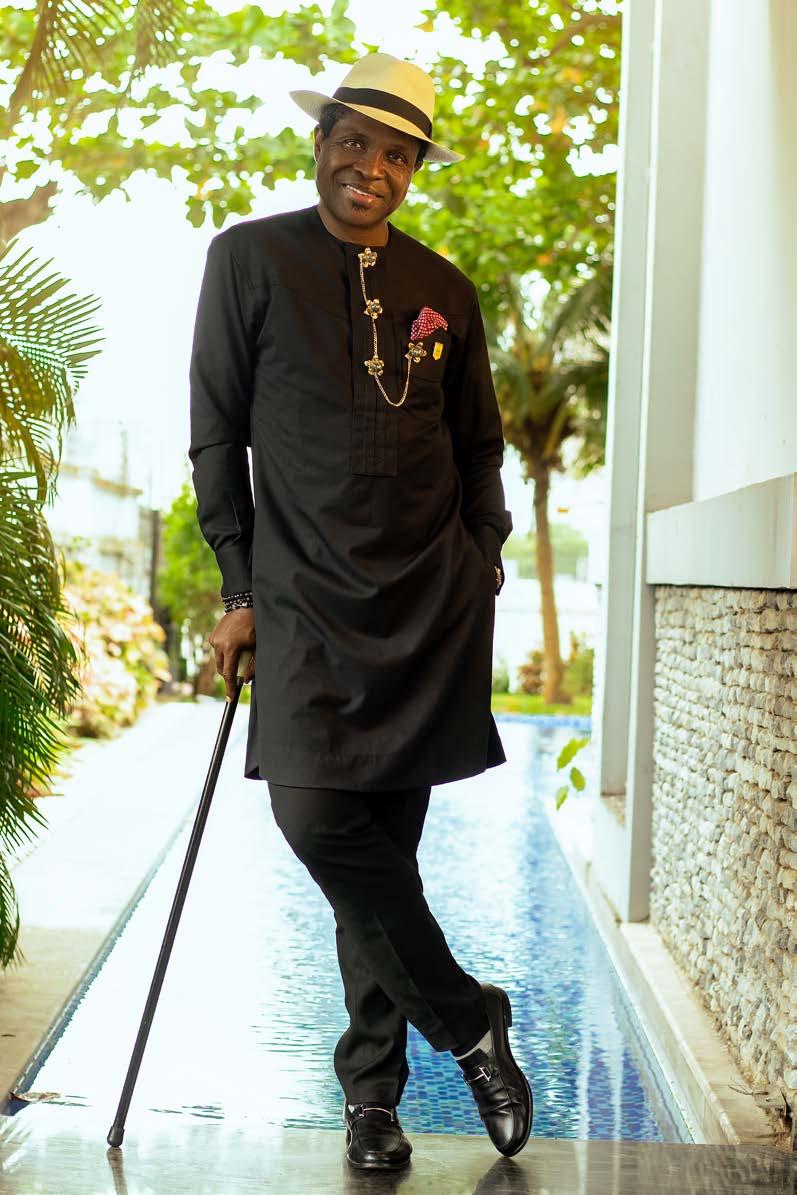
PAGE 11 THEWILL DOWNTOWN • www.thewilldowntown.com VOL 2 NO. 42 • OCTOBER 16 - OCTOBER 22, 2022
“JUDICIARY also realises that they have been at the brunt of a BACKLASH by public perception that the Judiciary is no longer the last line of defence…And I believe that the Judiciary themselves have now looked at it and said, ‘this cannot be good for our reputation. Let us begin to do THINGS DIFFERENTLY.’ This case is one case in hand to show that the Judiciary is becoming reliable.”
INTRO
PARAGRAPH BY KEHINDÉ FAGBULE
8 BENEFITS OF JOJOBA OIL
For Skin And Hair Plus How To Use it
(1) DELAYS SIGNS OF AGING
Jojoba oil contains Vitamin E, an antioxidant that helps the skin defend itself against anything that can cause premature ageing and skin damage.
In addition, Jojoba oil is also rich in amino acid, a building block of collagen which reduces the appearance of fine lines and wrinkles and improves skin texture, tone and elasticity when applied to the skin.

To use apply a few drops of Jojoba oil to freshly cleansed skin, or better still, you can use it to boost the efficacy of your go-to anti-ageing products.
BY DORCAS AKINTOYE
We can all agree that choosing one of the dozens of oils to add to your beauty regimen is not easy to figure out. We have coconut, rosehip, grapeseed oil, argan oil and many others, and they all contain unique properties that can impressively benefit your skin and hair.
In case you don't know, another oil deserves a humble brag—Jojoba Oil. Jojoba oil is derived from the seeds of the Jojoba shrub, a perennial native to the North American deserts. The oil is made from 50% of Jojoba seeds, extracted by cold pressing, a process that helps maintain the rich nutritional value of the oil.


Like other skincare oil, Jojoba oil contains loads of vitamins, antioxidants and anti-inflammatory properties, but what makes it unique is that Jojoba oil is technically not an oil but a Wax Ester.
Anytime you shop for Jojoba oil, make sure it's 100% pure organic, cold-pressed and unrefined by checking the ingredient list because processed oil contains preservatives and some other ingredients, which can irritate the skin and cause adverse side effects such as eczema and allergic reactions.

If “Jojoba” is listed as the main ingredient, you are getting an adequate amount of the product that can fulfil your desired skin and hair needs.
Below, see eight benefits of Jojoba oil for your skin and hair.
(2) STOP PREMATURE GREY HAIR
Many factors contribute to the hair’s premature ageing, including exposure to pollution, dust, stress and so on. Jojoba oil can safeguard your hair like a strong shield. Including Jojoba oil in your hair care regimen can prevent premature greying of your hair.
For usage, apply Jojoba oil to your scalp and hair using your fingertips; we suggest slightly heating the oil before applying it to ensure better absorption. Then
VOL 2 NO. 42 • OCTOBER 16 - OCTOBER 22, 2022 PAGE 12 THEWILL DOWNTOWN • www.thewilldowntown.com
BEAUTY
Organic Cold pressed Jojoba oil
Organic Jojoba oil
PERFECT
POTION
BEAUTY
leave the oil on your scalp for 20 minutes, and wash your hair using a mild hydrating shampoo and conditioner.
(3) SOOTHE DRY SKIN
Jojoba oil helps in soothing dry skin and irritated skin.

Its anti-inflammatory benefits help balance your complexion while providing the hydration it needs to restore itself. Because Jojoba oil is more or less like a humectant, it helps in forming a protective seal over the skin to prevent future moisture loss.
Use a few drops of Jojoba oil straight after a shower, or mix it into your moisturiser to increase its effectiveness and super hydrate your skin.
(4) REPAIRS DAMAGE FROM HEAT AND STYLING TOOLS
Jojoba oil helps treat hair damage caused by heating tools and chemical treatment. Once applied to your hair, it creates a protective shield and fights against heat damage. This happens because, unlike other oils, Jojoba is not permeable.


For usage, apply Jojoba oil to your hair after a curling and straightening session.
(5) IT HELPS IN CONTROLLING DANDRUFF
Jojoba oil should be your go-to when looking for a natural dandruff solution. Jojoba oil helps in restoring the scalp’s natural pH balance. Once you apply Jojoba oil to your hair helps regulate oil production by sending a message to the hair follicle that there is enough moisture on the scalp, which in turn helps lessen greasy dandruff flakes that result partially from excessive oil on the scalp.
Apply Jojoba oil to the hair above your scalp, then work down evenly to the hair tips. We suggest slightly heating the oil before applying it to ensure better absorption. After applying it to your hair, leave it in your hair for about 20 minutes, and then shampoo, condition and rinse.
(6) TREAT ACNE
Jojoba oil contains antimicrobial properties that can ward off certain bacteria, making it an excellent choice for acne-prone skin.
For usage, you can apply a few drops over your face with a cotton round after cleansing and toning. Better still, you can use it as a carrier for other acne-fighters, such as tea tree oil.
(7) IMPROVE HAIR MANAGEABILITY
Jojoba oil can be used to manage tangled hair,


reduce splits ends and moisturise the dry scalp of the hair.
For usage, add a few drops of jojoba oil to your shampoo or conditioner to enhance its effectiveness.
(8) HELPS IN COLD SORE TREATMENT
Jojoba oil is an undercover cold sore preventative that really works. A cold sore emerges from the virus moving up the nerve shaft and feeding on oxygen.
So when Jojoba is applied to the area, it will quickly mix with the skin sebum and block the flow of oxygen to the virus, which retreats back into the nerve shaft.
If Jojoba oil is regularly applied, the virus can never get the oxygen it needs to kick off.
For the usage, apply a few drops of Jojoba oil on the area with cotton wool after cleaning.
PAGE 13 VOL 2 NO. 42 • OCTOBER 16 - OCTOBER 22, 2022
Organic Jojoba oil
THEWILL DOWNTOWN • www.thewilldowntown.com
Natural JoJoba oil AROMATIKA
Jojoba oil for skin and face HANDCRAFT BLENDS
NOW SOLUTIONS
Natural JoJoba Oil
Sinistral And So What?
Demystifying The Age-old Left-handed Stigma
 BY KEHINDÉ FAGBULE
BY KEHINDÉ FAGBULE

Conversations about culture are always interesting. And very polarising too. Of course, culture is what informs us of our being. We’ve adopted these things—mostly subconsciously—from the moment our infant brain started working until today. But we must admit that some of them are questionable and, as an effect, cultivates a shame-based stigma-filled society like what left-handers have to go through in a culture where they are the vast minority, and their daily operations are scrutinised differently.
There is a general taboo on left-hand use: Giving, receiving, eating, and drinking with the left hand are considered rude by virtually all members of the community. In Nigeria, transactions with any elder using the left hand is viewed as a lack of respect. “It is disrespectful to pass or receive something from elders with your left hand,” is the most popular social conditioning society has exerted on us through culture. Many people don’t know the answer to the “whys”, but the questions are enormous. Why does a new mum worry
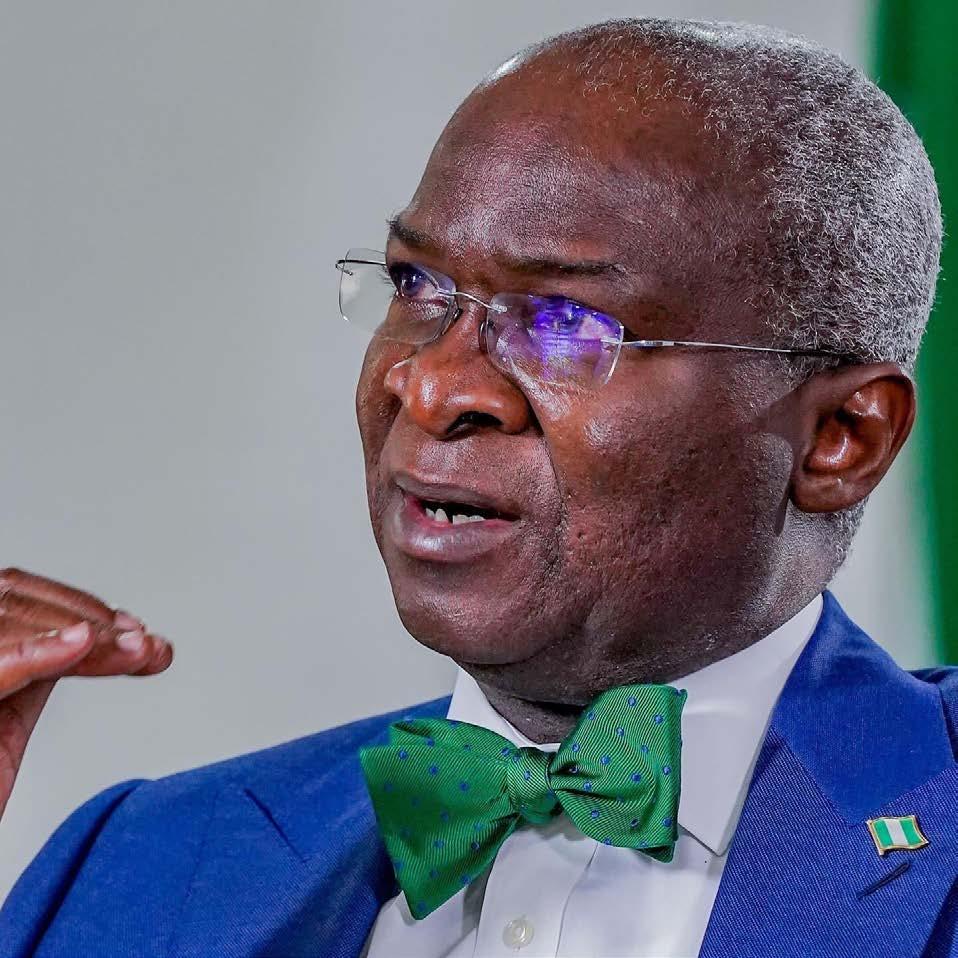
that her baby is left-handed and often tries to force their toddler to change? Why is there a handedness inequality between the left and right arms?
Before we get into the nitty-gritty of it all, it is important to note that southpaws make up just 10 per cent of the world population. However, despite the years and years of extensive research, just why one in 10 people favour their left hand is a mystery. A straightforward genetic link hasn’t been proven, and two right-handed parents can have a left-handed child. Theories deemed responsible include genes, fetal development (in the womb), environment, etc. Researchers are still looking for answers to explain it. So then, it is a typical case of society hating what they don’t understand.
To understand what the average day in the life of a left-hander is like based on their handedness, I reached out to two left-handed friends—a man, Gabe, and a woman, Chigozie, because, of course, inclusiveness— and the first thing Chigozie would say was, “Giving Yoruba people stuff with my left hand,” when asked about some of her weirdest encounters as a southpaw.
It’s no surprise that Yoruba people are very cultural, and even though there are a lot of unverified myths surrounding several of their cultural practices and ideologies, most of them have owned it as their truth. “Guy… the way I get attacked ehn! Even if I explain that I’m left-handed, they still go ‘Ehen? You must correct it.’ And I’m like, ‘correct what exactly?’” She recounts. She explains how difficult it is to ‘just correct it,’ “It’s reflex. If it doesn’t require both hands, I’ll most likely do whatever I need to do with my left hand. But I’ve realised that this world isn’t designed for left-handers.” She’s not wrong. Have you ever tried to hold a pair of scissors with your left hand? It’s not made for southpaws, just like the vast majority of most daily household equipment designs. We live in a right-handed world.

For Gabe, the comments are similar; and endless. ‘No wonder you’re smart,’ ‘Can you draw?’ ‘How come you don’t have good handwriting?’ ‘What hand do you clean up with after doing number 2?’ Getting treated like an alien is not anyone’s desired treatment. With Chigozie, it is ‘You are not normal; there must be a brain problem somewhere.’ She continued, “They’d (people) relate my constant headaches to my being left-handed. Then they’d google stuff and show me a part or two where the internet says southpaws are more prone to migraines. Another one is when people see me write, they’d just say it casually and passively— this one no dey normal o, see as she dey write.” She became so tired of raising eyebrows and provoking the ridiculous questions and lashings that come with being a left-hander that she has to remind her subconscious each time to use her right hand sometimes. She said, “I use my right hand a lot too. I feel like if you’re left-handed, you’re going to be ambidextrous to an extent. Because even though your left hand is your dominant hand, with all the lash you’d get from people for using your left hand to do certain things, you’ll have to get used to using your right over time. So these days, I find myself giving other people stuff with my right hand because how many times in a day do I want to repeat that I’m left-handed?”
Society is fond of ostracising whoever or whatever is perceived as ‘abnormal.’ We can go on and on about the different cultural practices and ideologies that, although have not been found to hold water on a medical or ethical basis, have festered into our lives littering an already heavily-polluted shame-based environment that we live in with more stigma.
Handedness is not a big deal; at least one that should never have warranted two whole pages anyway. Throughout history, we have seen very successful southpaws such as past American presidents—Barack Obama, Bill Clinton & George H.W. Bush, media mogul Oprah Winfrey, Nollywood superstars—Funke Akindele, Adesuwa Etomi, Desmond Elliot & OC Ukeje, former Lagos State Governor, Babatunde Raji Fashola, Prince William and so on, signing deals and legislation with their left hand. However, being a sinistral in Nigeria (and Africa by extension) is often blown out of proportion to be yet another reason to slap the “other” label on people whose story we can’t be bothered to understand.


VOL 2 NO. 42 • OCTOBER 16 - OCTOBER 22, 2022 PAGE 14 THEWILL DOWNTOWN • www.thewilldowntown.com CULTURE
Desmond Elliot
Oprah Winfrey
Barack Obama
Adesua Etomi-Wellington
Babatunde Raji Fashola
Funke Akindele
Make Your Home Smarter With These 6 Gadgets

A Working Wi-Fi
The most important thing for every smart home is a good Wi-Fi network. You don’t want to be locked out if your only alternative means of getting in requires Wifi which you do not have.
BY TILEWA KAZEEM
Thedemand for a comfortable and opulent smart home has increased dramatically in Lagos. Who wouldn’t want a house like the ones that are so romanticised in Hollywood movies? Of course, without the part where they take over and start autonomously wreaking havoc. One of the most advanced things you could do is speak to your house; when you give it instructions, it understands and carries them out without any trouble.

Stay with us if your home was previously dumb and you want to retrofit it with some technology to make it smarter. There are a few things for you here.
August Wi-Fi Smart Lock

Save yourself the stress of having keys jangling around when you can open ‘sesame’ your door style. It comes with DoorSense, a feature that lets you know if your door has been left open.
Amazon Echo Dot with Clock
At the top of the list is this spherically attractive speaker with a built-in voice assistant. Having a few of these in rooms around your house is the right first step to telling your home what to do.

Arlo Q Security Camera
This camera notifies you if someone is in your home. Its motion detection notification, 1080p HD recording and an easy-touse app are some of the important features of this high-end security camera.

Wemo Wi-Fi Smart Plug
This is the cherry on top of all these gadgets. The smart plug is compact, smart and is what is going to turn those lamps on when the orders are echoing around the room.

Nest Doorbell
Either wired or using a battery, your home remains safe regardless. With a vertical aspect ratio of 3:4, you see more. You also get a device that recognises familiar faces, vehicles and animals.

PAGE 15 THEWILL DOWNTOWN • www.thewilldowntown.com VOL 2 NO. 42 • OCTOBER 16 - OCTOBER 22, 2022 TECHTALK
Image from Wi-Fi
Echo Dot With Clock
AMAZON
Security Camera ARLO Q
Wi-Fi Smart Lock AUGUST
Doorbell NEST
Wi-Fi Smart Plug WEMO
Asake
BY BOLUWATIFE ADESINA

MOVIE REVIEW:
Anikulapo
Like in all Kunle Afolayan films, the vast amount of effort put into research and other elements of filmmaking is evident. The attention paid to the setting, language, and cultural practices is impressive. Anikulapo’s plot is driven by an interesting story, but I found it difficult to hold on to a particular plot point as another minor plot point would arise and render the previous one useless, all without tying into the main conflict

SHOWMAX WATCH OF THE WEEK
DIICHE

2022 seems to be a coming-of-age year for traditional epic films in Nollywood, with audiences being treated to culturally rich films. Earlier this year, King of Thieves stole hearts in the cinemas, now Kunle Afolayan excites us with Anikulapo while Biyi Bandele’s Elesin Oba waits in the wings. Anikulapo is a Yoruba traditional epic set when the Òyó empire reign dominated Yoruba land. With this latest Netflix entry, Kunle Afolayan transports us back in time with a story inspired by the Ifá mythology, a true and proper display of culture.
Saro (Kunle Remi), a traveller from Gbongan arrives in Òyó Ilé looking to establish himself as a cloth weaver. He is a dashing young man and he immediately catches the eye of a rich businesswoman, Awarun (Sola Sobowale). In return for sexual favours, she helps him get on his feet. Saro is handsome and an eligible bachelor, and he soon begins to catch the eyes of other women, maids and maidens. He eventually catches the eye of Princess Omowumi (Eyiyemi Afolayan) and the Aláàfin’s youngest and favourite wife, Arolake (Bimbo Ademoye). Saro and Arolake start an affair and plan to elope to live in love together, but they are outed by the heartbroken princess when she discovers their secret.
Saro is violently mobbed and left to die in the forest where he is resurrected by a mystic Akala bird who gives him another chance at life depending on the reason for his death. The Akala bird does not find him worthy of another chance, but before it can banish him back to the afterlife, Arolake, who has been watching, chases the bird away and retrieves the ado (gourd) it used to bring Saro back to life. When they get to the town of Ojúmó, Arolake sees a boy’s death as their chance of a new and better life; she gives Saro the magical gourd to use to resurrect the boy. News of Saro’s act spread, and he is given a new name- Anikulapo, the master of death. Anikulapo’s fame spreads far and wide, and he becomes rich and powerful, but his hubris and irresponsibility prove to be his downfall.
Furthermore, unnecessary scenes with unimportant details that can even count as mistelling of history needlessly extend the runtime. There’s a new trend of retelling African stories with narratives that absolves them of responsibility for ugly practices done in the past. In some scenes, it is made to look like the Òyó empire vehemently opposed slave trade. This is ridiculous considering the fact that the Òyó empire was known as one of the biggest facilitators of slave trade and even practised it before the white men made it more profitable, but then this is supposedly fiction. We digress.
Anikulapo’s story is captivating and beautifully told, the use of Ìjìnlè Yoruba for the dialogue makes it even more interesting, but one can’t get over how slowly the dialogue is delivered; could this be because of difficulties with the diction?
While Anikulapo presents a rich display of culture, the depiction of the pottery factory and the use of an Asohun Oba (King’s mouthpiece) being highlights, some details could have been better executed.
Anikulapo is filled with a star cast of top Yoruba actors, seasoned veterans that give efficient performances in their roles, especially Sola Sobowale (King of Boys:
The Return of the King), who excels in a different role than we usually see her in.
Kunle Remi (A Naija Christmas) gives a good performance, but he struggles in some scenes and sometimes with the ìjìnlè Yoruba used for the dialogue. This also seems to be a problem for debutant Eyiyemi Afolayan who plays Princess Omowumi as the lines do not roll off her tongue as they should, and this affects her performance.
Bimbo Ademoye (Breaded Life) continues her run of impressive performances as she embodies her role perfectly.
The plot of Anikulapo is elevated by the good execution of the technical aspects.

The sound design and music help to set the mood and tone of the film with a score that helps to reinforce context and is easy on the ear, while the cinematography ticks all the boxes, aiding the storytelling with great shots.
Overall, Anikulapo tells a fascinating story, all in the native language of the location and period, while being a stylish piece of work. Watch it wherever you can.
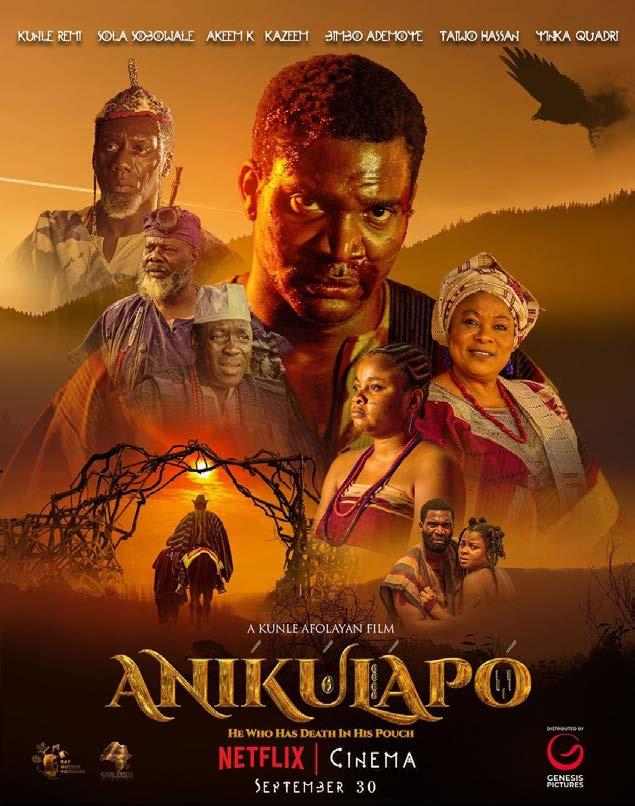
Rating: 7/10
Having watched the first two episodes of Showmax’s original Diiche, I find myself drawing comparisons to the numerous whodunnits I’ve been able to see and find that the show is smartly made and has successfully adapted the classic murder mystery for a Nigerian audience. Diiche’s premiere follows the eponymously named main character as she is struck by the tragedy of her fiance’s death and the resulting suspicion of her as his killer. Utilising flashbacks in a manner reminiscent of How to Get Away with Murder, the story is told both from the past and the present, with two police inspectors on the case, interviewing suspects a la Knives Out


However, this version of the classic genre has a very Nigerian spin, with native doctors and indigenous languages being spoken. The show’s music is also very well done, with the notes swelling at precisely the right moments.


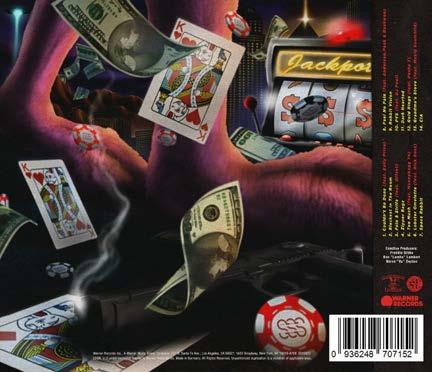


The second episode of the ShowMax original picks up where the premiere left off, with one of the police inspectors found knocked unconscious.

(I must say I do really like the show’s title sequence.
Dark and foreboding, it’s a good mood setter. ) She is awoken and angrily storms off to Diiche’s house, who she believes is somehow responsible.
Diiche herself meanwhile, continues to be plagued by nightmares with a recurring water/
A.BEEB - Virgin

drowning motif.
She jolts awake and is made to answer more questions from the inspectors. The hubbub of reporters around the house makes Nnamdi’s (the deceased) mother believe that Diiche has been arrested, but she is quickly made to realise this is not so.
To heap more pressure on Diiche to “confess” she resorts to a method that puts her at the mercy of the court of public opinion.
The inspectors continue with their investigation with a smartly edited and scripted interrogation scene.
Multiple suspects are questioned with the end of one suspect’s
sentence and the beginning of another suspect’s words.
The How to get Away With Murder-style flashbacks continue, revealing that Nnamdi was in business with a gangster known as G-Money.
Jimi was not a fan of this partnership, as we are made to know. This starts a streak of erratic behaviour for Jimi throughout the rest of the episode, culminating with a police car chasing him through the streets of Victoria Island and his being arraigned as suspect Number One.
Was Jimi Nnamdi’s killer? He has been established to be very close with Diiche. Maybe it was a crime of passion? He has also been cooking the financials. Maybe it was a monetary issue that led to him offing Nnamdi.
All will be revealed in Episode 3, with new episodes releasing on ShowMax every Thursday.
 Scan this with your camera to access the playlist (Apple Music) Scan this with your camera to access the playlist (Spotify)
Scan this with your camera to access the playlist (Apple Music) Scan this with your camera to access the playlist (Spotify)
VOL 2 NO. 42 • OCTOBER 16 - OCTOBER 22, 2022
Olamide - We Outside Young Jonn - Xtra Cool
Freddie Gibbs_ Rick Ross - Lobster Omelette (feat. Rick Ross)
Idahams_ Ajebo Hustlers - Bad Girl
Duncan Daniels - Diaspora Night
Poco Lee_ Hotkid - Otilo (Izz
Dami Oloye - Merchant
Asake_ Burna Boy - Sungba (feat. Burna Boy) - Remix





























































 BY KEHINDÉ FAGBULE
BY KEHINDÉ FAGBULE


























 Scan this with your camera to access the playlist (Apple Music) Scan this with your camera to access the playlist (Spotify)
Scan this with your camera to access the playlist (Apple Music) Scan this with your camera to access the playlist (Spotify)